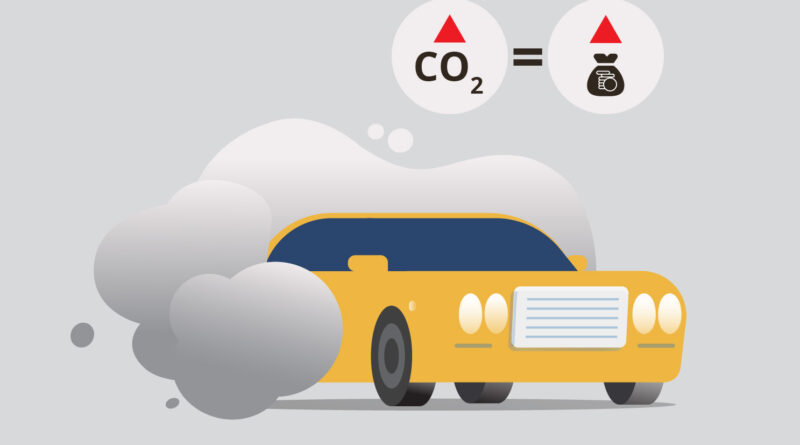What Is LPG Cars And Should I Convert It
As the automotive industry continues to evolve, alternative fuel options are gaining prominence, offering environmentally friendly alternatives to traditional gasoline and diesel vehicles. LPG, or liquefied petroleum gas, has emerged as one such alternative, providing drivers with a cleaner and more sustainable option. This article aims to demystify LPG cars, exploring what they are, how they work, and the advantages and considerations associated with this alternative fuel. See hydrogen vs electric.
- What is LPG?LPG stands for liquefied petroleum gas, a flammable hydrocarbon gas that includes propane and butane. It is derived from the refining of crude oil and natural gas processing. LPG is stored and transported in a liquid state under pressure, and it transitions to a gaseous state when released.
- How LPG Cars Work:
- Conversion or Factory-Fitted: LPG systems can be installed as aftermarket conversions or as factory-fitted options by certain automakers. In a conversion, a traditional gasoline-powered vehicle is modified to run on both gasoline and LPG.
- Dual-Fuel Capability: LPG cars are designed to operate using either LPG or gasoline. Drivers can switch between the two fuels manually or automatically, offering flexibility and convenience.
- Fuel Injection System: LPG cars typically feature a dedicated fuel injection system for the LPG component. This system ensures optimal combustion and performance when running on liquefied petroleum gas.
- Advantages of LPG Cars:
- Reduced Emissions: LPG combustion produces fewer harmful emissions compared to traditional gasoline or diesel. It contributes to lower levels of carbon monoxide, nitrogen oxides, and particulate matter.
- Cost Savings: LPG is often more cost-effective than gasoline or diesel, providing potential savings for drivers. Additionally, some regions offer tax incentives or rebates for LPG vehicle owners.
- Dual-Fuel Flexibility: LPG cars offer the flexibility to switch between LPG and gasoline, addressing concerns about fuel availability and infrastructure.
- Extended Engine Life: The cleaner combustion of LPG can lead to reduced engine wear and increased longevity compared to traditional fuels.
- Considerations and Challenges:
- Limited Infrastructure: LPG refueling infrastructure is not as widespread as gasoline or electric charging stations, limiting the convenience of refueling for some drivers.
- Reduced Range on LPG: While dual-fuel capability provides flexibility, LPG generally has a lower energy density than gasoline, resulting in a reduced driving range when running on LPG.
- Conversion Costs: Converting a vehicle to run on LPG involves an upfront cost. However, potential fuel savings over time may offset this initial investment.
- Environmental Impact:
- Lower Greenhouse Gas Emissions: LPG is considered a cleaner-burning fuel, emitting fewer greenhouse gases and contributing to lower levels of air pollution.
- Transition to BioLPG: BioLPG, a renewable form of LPG produced from organic materials, further enhances the environmental credentials of LPG cars, offering a sustainable alternative.
- To Convert or Not to Convert? Considering the environmental benefits, potential cost savings, and fuel availability, the decision to convert to an LPG car rests on individual preferences and circumstances. Drivers seeking a greener, cost-effective alternative with the flexibility of dual-fuel capability may find LPG conversion a compelling option. However, careful consideration of conversion costs, infrastructure availability, and driving patterns is essential to make an informed decision that aligns with both environmental and economic objectives.
LPG cars represent a viable alternative for drivers seeking a cleaner and cost-effective fuel option. While challenges such as limited infrastructure exist, advancements in alternative fuels, including LPG, contribute to a more sustainable future for the automotive industry. As technology continues to evolve, LPG cars, along with other alternative fuels, play a crucial role in reducing the environmental impact of transportation and diversifying the choices available to environmentally conscious consumers.
In the evolving landscape of alternative fuels, LPG cars contribute to the diverse array of choices available to environmentally conscious consumers, fostering a more sustainable future for the automotive industry.
Buying a used VW. Buying used vauxhall, BMW, Jaguar, Ford, Volvo, Range rover, Bentley, Aston Martin, Porsche, Ferrari, Lamborghini, Maserati, Hyundai, Tesla, Honda, Pagani

